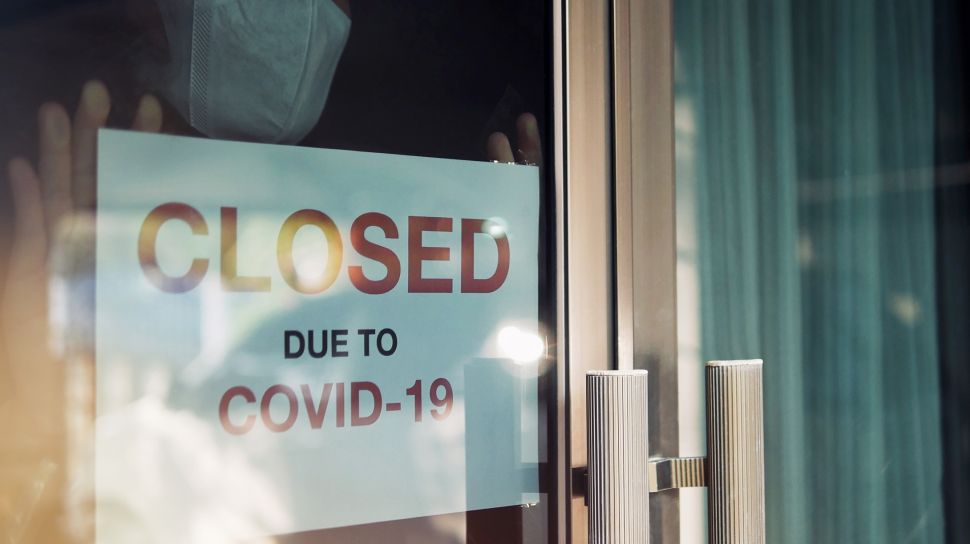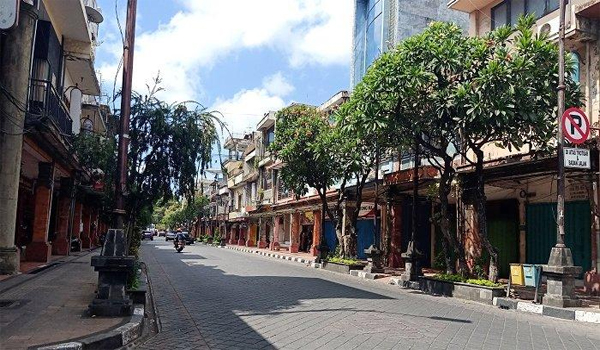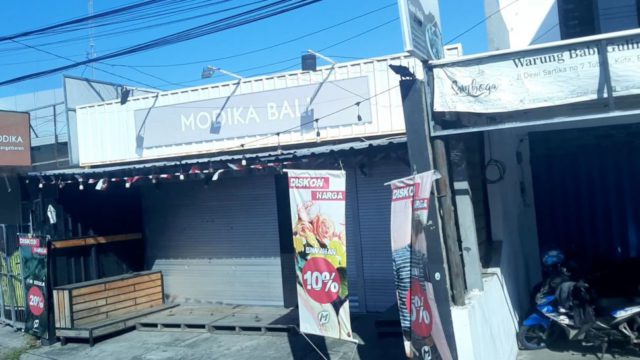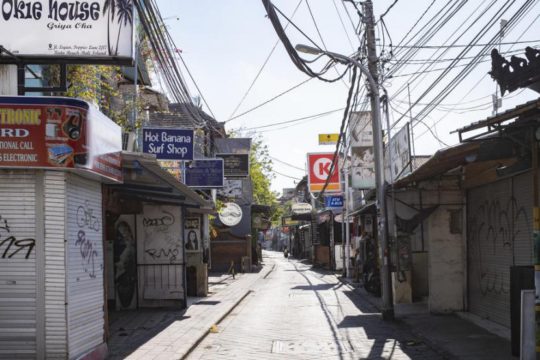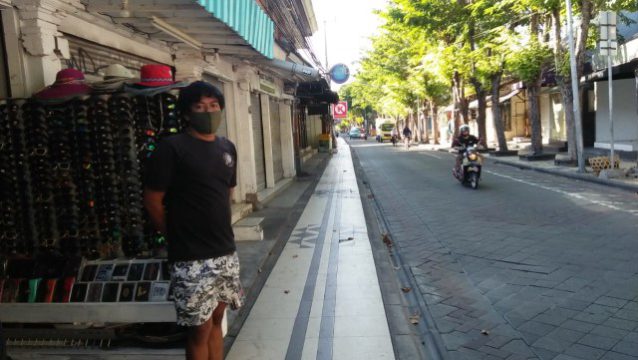EDITORIAL
In the myriad of government programs to assist the recovery of Bali’s Tourism economy, much-needed attention to the Island’s retail and restaurant sectors appears to have been overlooked.
Small and medium-sized enterprises that once operated shops and restaurants along the streets frequented by tourists in Bali have been devastated by the continuing global pandemic. On many streets in the once-bustlings areas of Nusa Dua, Tanjung Benoa, Kuta, Seminyak, Sanur, and Ubud, closed and boarded businesses now can total as much as 70% or more of available commercial business locations.
Some of the streets surrounding Bali’s main hotel zones are beginning to resemble war zones. Chairs and tables are stacked haphazardly to bar entry to once busy restaurants and shops. Large dirty windows provide glimpses of the deteriorating interiors of empty shops. “Closed” and “For Rent” signs at entrances give expression to local landlord’s vain hope that someone might want to rent a shop located on a Balinese street long devoid of tourists and pedestrians.
Many Bali hoteliers and tourism officials remain positive, insisting tourists will soon return, especially now that vaccines against the coronavirus are becoming more readily available. And while all pray these predictions are accurate, questions arise surrounding what kind of tourism experience will await future Bali tourists venturing out of hotels to walk deserted streets full of empty and nearly-derelict commercial space. Shopping and casual dining, which form an important part of the universal travel experience and past visits to the Island of Bali, no longer exist on many Bali streets and, given the economic havoc the coronavirus is leaving in its wake, won’t become return to become part of a Bali’s tourism scene anytime soon.
Not only are many of the shops, eateries, and small spas have gone from the streets of Bali, but gone also are thousands of paid jobs for the Balinese who once worked in these establishments.
While current recovery programs and policies are understandably focused on Bali’s now closed or mostly vacant hotels, attention must also be paid to “retail therapy” that can rejuvenate the businesses that comprised an essential part of the Bali visitors’ experience and provided countless jobs to the people of Bali.

